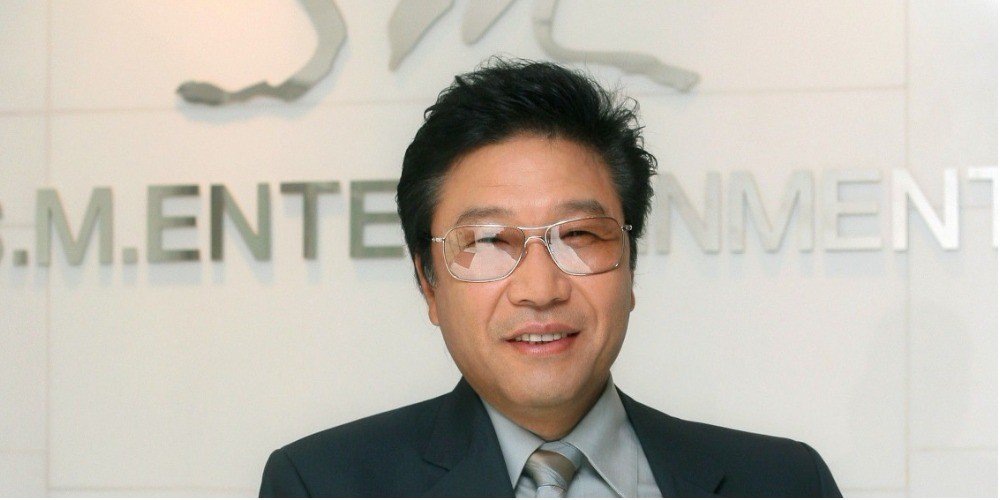In a recent report by Asia Economy Daily, it was revealed that SM Entertainment has been paying a company owned by Lee Soo Man millions for years.
According to SM’s business report for 2017, SM paid a company named Like Planning 10,832,700,000 won (approximately $10.2 million) in the course of the year. Like Planning was created by Lee Soo Man in 1997. SM’s business report states that Like Planning is in charge of producing and audio for SM artists’ albums. Last year, the amount that SM paid Like Planning amounted to approximately 5 percent of their total sales which was 216.1 billion won (approximately $203 million). In 2016, SM paid Like Planning 11,039,580,000 won (approximately $10.4 million). This amount was also around 5 percent of that year’s total sales. SM’s business report even specified “Our company is to pay Like Planning a royalty of up to 6 percent.” SM’s payments to Like Planning have increased every year. In 2014 the payment was 7.5 billion won (approximately $7 million) and in 2015 the payment was 9.9 billion won (approximately $9.3 million). Following 2015, the payments have reached over 10 billion won (approximately $9.4 million). In 2015, the payment regulation was adjusted so that Like Planning can receive a royalty of up to 6 percent of total sales instead of a royalty of up to 15 percent from only album sales. Given that SM’s album sales contributed to 21.95 percent of total sales for the company, the new contract terms and conditions following 2015 are much more favorable for Like Planning.
Furthermore, the report suspects that this money is essentially a way of paying Lee Soo Man directly.
Due to these large sums of money going to Lee Soo Man’s personal company, many have criticized this and called it an “internal transaction” that fills Lee Soo Man’s pockets. SM got listed on KOSDAQ in 2000 and have not made dividend payments since then. Lee Soo Man resigned from his position as a director in 2010, so he does not receive any stock dividends or wages from SM now. The report states that it appears as though Lee Soo Man gets paid through the payments going to Like Planning. A securities firm researcher specializing in entertainment businesses commented, “There are cases where profits shrink due to internal transactions.” Due to the effects of the THAAD deployment, SM’s profits fell from 38.4 billion won (approximately $36 million) in 2015 to 20.7 billion won (approximately $19.5 million) in 2016 and 10.9 billion won (approximately $10.3 million) last year. The business’s total profits for 2017 was similar to the amount paid to Like Planning. This means that despite a slump in business and profits, Like Planning payments are still increasing. A source from the securities firm industry talked about how such internal transactions could cause a problem in relation to fair trade. The source said, “Stockholders may file complaints about the company’s profits leaking out.”
SM Entertainment responded to the report by stating that everything they’ve done is legal.
“This is SM Entertainment. Our company would like to reveal our official stance regarding the report released by a news outlet about the producing contract between our company and Like Planning. The producing contract between our company and Like Planning has been and continues to be considered one of the most important aspects of our company’s global contents’ competitiveness and growth. Before and after getting listed on KOSDAQ in 2000, we have transparently announced the contract and transactions related to it. Regarding our contract with Like Planning, we thoroughly examined precedents made with similar global businesses regarding obtaining consultation by a professional third-party organization and signed a contract that was reasonable in comparison. There is no legal issue in regards to the contract and no unlawful internal dealings. As a leading company in Hallyu and K-pop, we have continuously grown. We will continue to be a leading business in the global entertainment market and through the expansion of the global market and growth in profits, we plan to maximize the profits of our stockholders, employees, and artists. Thank you.”
Honestly, the emphasis they put on the legality of it is definitely what makes me wonder about the ethics of all this. While netizens are predictably skeptical of the situation, I’m surprised that their stockholders aren’t the ones who would want the money investigated.
We’ll see if anything else comes of this, but realistically, things usually end around here.
 Asian Junkie Asian pop. Without discretion.
Asian Junkie Asian pop. Without discretion.
